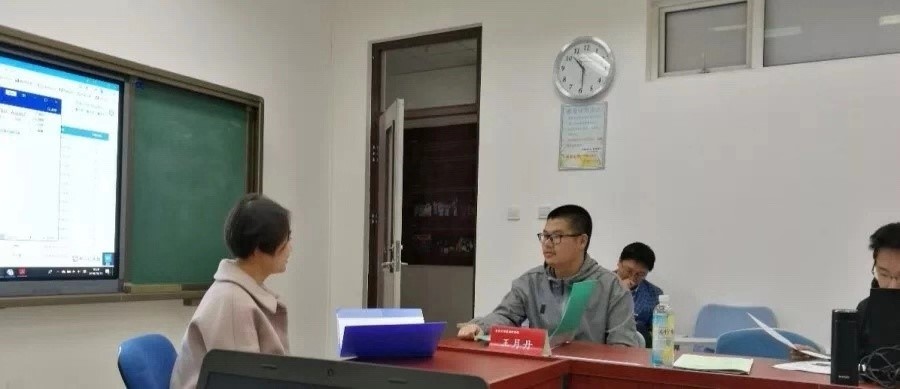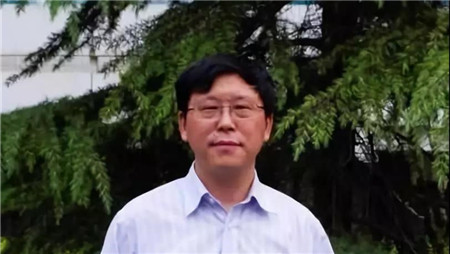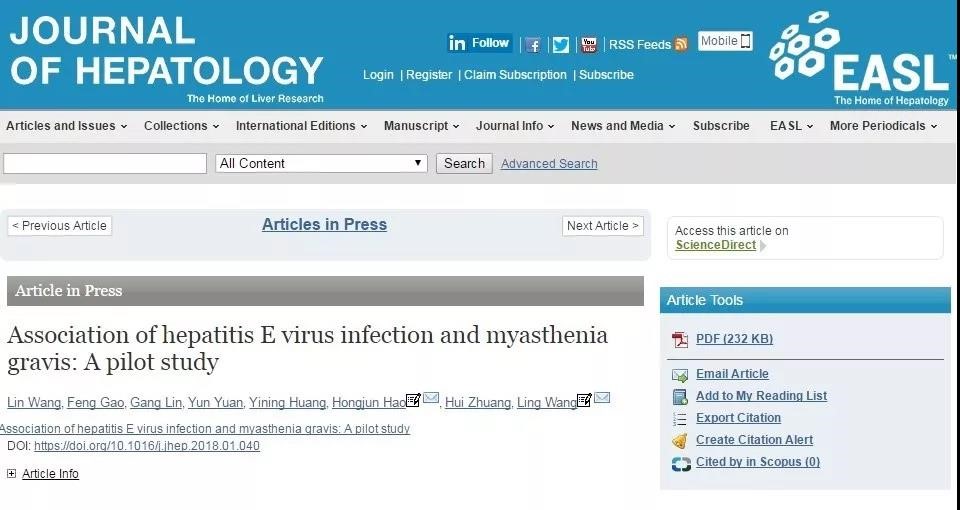In recent years, as teaching reform focusing on PBL (Problem-Based Learning) method proceeds, fruitful achievements have been made. The School has published 22 national-planning textbooks, and offered hundreds of courses for undergraduate and postgraduate students, among which there are seven national-level open courses of excellence, nine national-level courses of excellence, and ten municipal-level courses of excellence. The School has obtained two second prizes for the national-level teaching achievement, one first prize for municipal-level teaching achievement, coupled with seven teachers winning the Beijing Distinguished Teacher award and two national-level teaching teams.
After more than 60 years of development, SBMS is noted for its rigorous and innovative scholarly tradition, and has made a remarkable contribution to the nation’s medical education and research. The School has ranked in the first place for three times out of the four education evaluation projects run by MOE after 2000, and preclinical medicine major has been selected into the list of “double first-rate” initiative in 2017. The School has now become a leading national institution for teaching and research in the field of basic medical sciences.
Combining basic and specialized training programs
Basic medicine, which students first learn about upon entering medical school, lays foundation for the entire process of medical education. Undergraduates at SBMS major either in clinical medicine or basic biomedical research. The School also takes charge of the teaching of multiple basic medical courses for students in other majors including clinical medicine and dental medicine. Faced with the great number of students and courses, the School designs specific curriculum for students in different majors, following the principles of “teach accordingly and highlight foundation”.
The School has also been trying to distinguish each major’s training with refined curriculum, inter-disciplinary education, and case studies, making basic education to connect better to specialized education of clinical medicine, dental medicine, preventive medicine, or pharmacy.
Apart from demonstration majors of education reform, other majors’ preclinical medicine courses differ mainly in school hours, due to the fact that each major sets different training goals. For example, for students majoring in preclinical and clinical medicine, their basic medicine courses aim at consolidating foundations, improving capabilities, emphasizing innovations, and serving clinical practices. Focusing on the core matters of basic medical sciences, the course system encourages students to take part in PBL and research training.
 PBL group discussion
PBL group discussion
As education proceeds, students will have a more specialized curriculum according to their majors. For example, for students majoring in preclinical medicine, the emphasis will be placed on the training of conducting medical research and thinking like a researcher, while for students majoring in clinical medicine, on training of clinical practice and thinking like a practitioner.
Encouraging research and academic training
The School enrolls more than 100 students each year for its eight-year preclinical medicine program. There are 677 students on campus at the moment, including 415 for doctoral degree and 262 for master’s degree. Preclinical medicine aims at the cultivation of outstanding medical scientists.
In recent years, more than 300 Ph.D. students majoring preclinical medicine have graduated from the School annually. Among all the graduates, seven have won National Award for Excellent Doctoral Dissertation, and two New Academic Researcher Award for Doctoral Candidates honored by MOE.
The students will have supervisors all through their academic years, and will be offered with courses to enhance their innovative thinking, to train their scientist mindset, and to expose them to leading interdisciplinary subjects. Great talents will be chosen to take part in the “8+3” program, with 3 referring to the three extra years of overseas study besides 8 years at SBMS.
Integrating teaching and research training, undergraduate academic training has been playing vital roles in cultivating future innovative researchers, encouraging students to learn actively and profoundly and arming students with basic research abilities required to be a scientist.’
Nurturing doctors with both expertise and ethics
When asked about education, Wan said the essential duty of the school is to nurture doctors with both expertise and ethics, thus supporting the development of Chinese medical and health services. In practice, the school seeks for a balance between theory and practice: on the one hand, a series of core courses on basic theory are lectured by distinguished professors; on the other hand, the school establishes the Biomedical Experimental Teaching Center for students to practice experimental skills and learn to conduct scientific research. In addition, the school attaches importance to the combination of basic medicine and clinical medicine. Through teaching collaboration and joint training with hospitals, the School of Basic Medical Sciences engages excellent clinicians to give courses and participate as student tutors. Wan believes that the school will cultivate medical talents with a solid knowledge of medical theory, exceptional experimental abilities and impeccable professional ethics.
According to Wan, the current tension in doctor-patient relationship might be an inevitable stage of early marketization, where the concept of “customer first” intrudes upon the healthcare industry. He believes that this problem can be solved as the awareness of this problem raises among the people and as the industry standard and the legal system improve. He concludes that this tension is temporal, but the education of medical ethics should never stop. The School of Basic Medical Sciences will always consider this as its essential duty.
Producing fruitful academic achievement
As Wan proudly highlighted in the interview, the School of Basic Medical Sciences encourages innovative research and has accomplished multiple achievements that has won National Science and Technology awards. Representative cases include research on neurochemical principle of acupuncture analgesia, fertilization and embryo transfer in vitro, differentiation and development of T cell, molecular mechanism of estrogen-related tumor, molecular biology of hepatitis E virus (HEV), molecular pathology and immunological mechanism of emerging infectious diseases, molecular regulatory mechanism and quantitative measurements of cellular aging, etc.
Among these achievements, the neurochemical principle of acupuncture analgesia discovered by Academician Han Jisheng has promoted the acupuncture therapy worldwide and has enormously broadened modern neuroscience, leading Chinese neuroscience and research on physiological pain towards global frontiers.
During the past five years, the school has approved more than a hundred scientific projects and published nearly 400 research papers every year, including more than 200 SCI papers with members of the school as first authors or corresponding authors. So far, the School of Basic Medical Sciences has won nine provincial- and ministerial-level Science and Technology Awards and one State Natural Science Award; obtained 36 national invention patents and 5 international invention patents. The school has also independently developed a category-I new drug “novel tumor-specific imaging agent” which was approved by China Food and Drug Administration (CFDA) for clinical trials and has realized technology transfer and industrialization by now.
A research paper published
by a team led by Wang Ling, professor of the School of Basic Medical Sciences
It is worth noting that the school is encouraging researches in the fields of medical omics, genetics and genome and cell editing technologies. It is also encouraging the construction of generic technology platforms and State Key Laboratories. Based on its well-developed disciplines and key laboratories, the School of Basic Medical Sciences is determined to focus on the frontier of medical studies, enhance interdisciplinary cooperation between medical sciences and clinical sciences, and set up disease studies oriented subject group system.
In the end, Wan said that the study of human health and disease requires cooperation of different disciplines. Characterized by interdisciplinary collaboration, “Peking University Medicine” project brings the School of Basic Medical Sciences excellent development opportunities. The school has the responsibility to push forward frontier research through cooperating with clinical medicine and pharmaceutics, and eventually to build a healthier China.
Profile:
Wan You
Dean of the School of Basic Medical Sciences, Peking University
Professor of neurobiology
Director of Peking University Neuroscience Research Institute
Director of State Key Laboratory in neuroscience
Vice president of Chinese Association for the Study of Pain (CASP)
Vice chairman of China Association of Acupuncture-Moxibustion Acupunture Associate editor of Neuroscience Bulletin and Chinese Journal of Pain Medicine
Written by: Ouyang Jie & Ouyang Xiaoyi
Edited by: Xu Penghang & Yan Shengnan
Source: PKU Official WeChat Subscription Account


